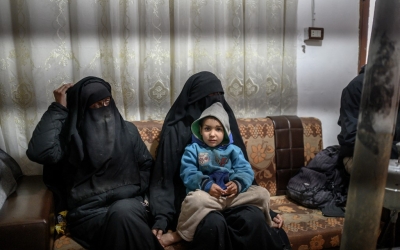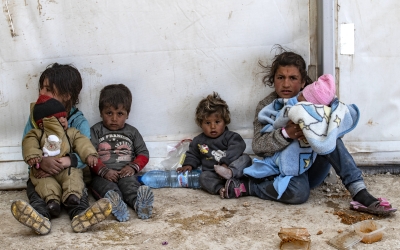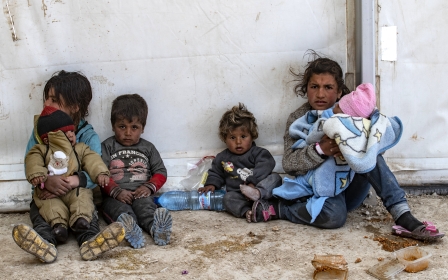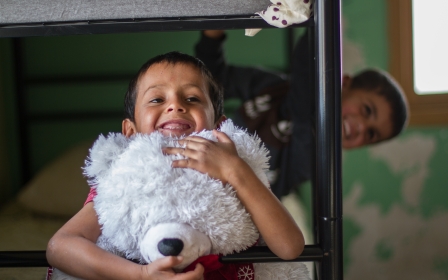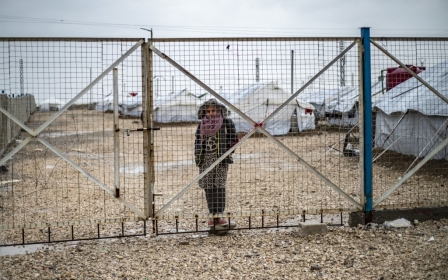Syria: UK repatriates three British children from Islamic State camps
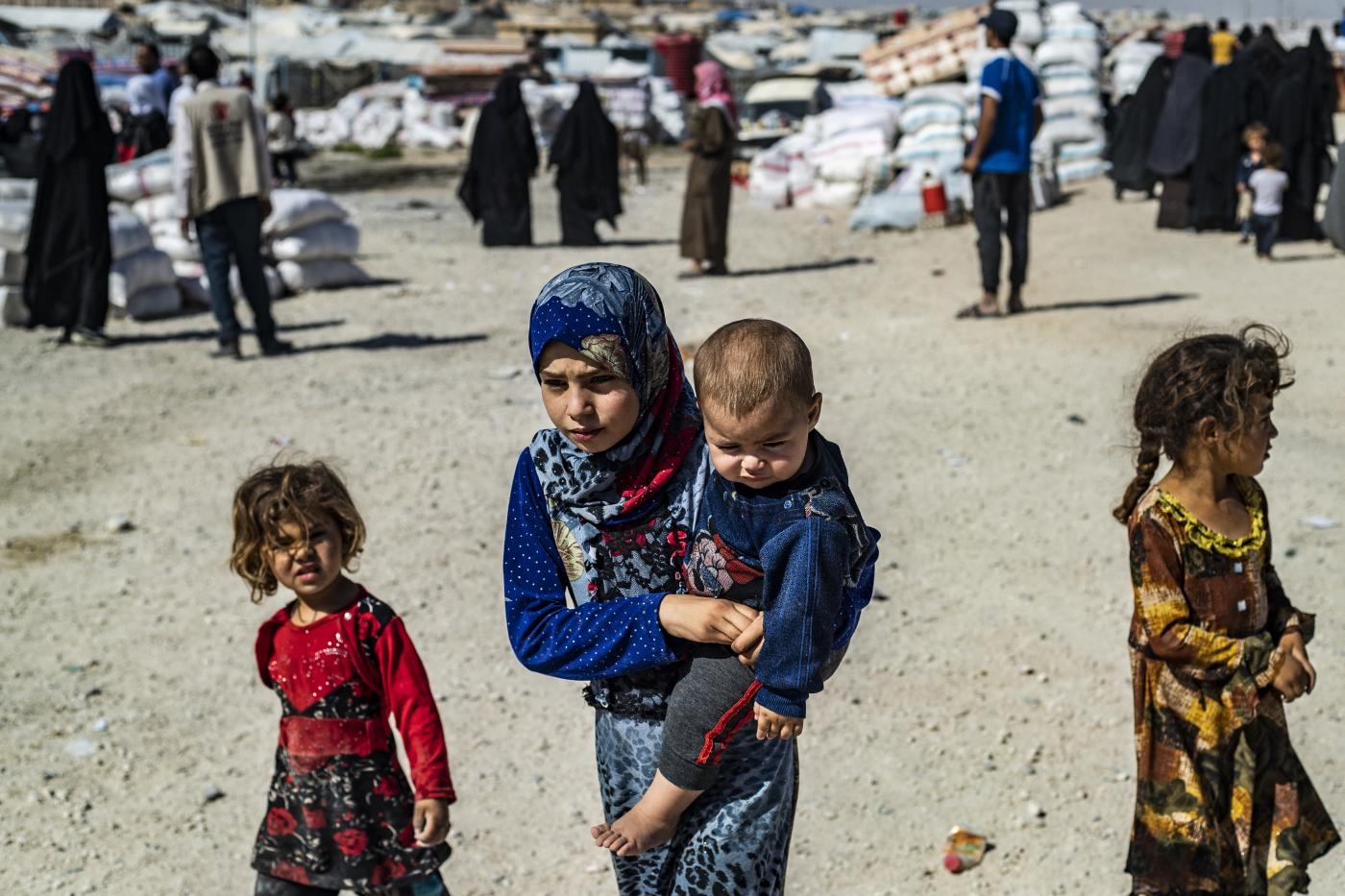
Three British children living in Kurdish-controlled camps in northeast Syria have been handed over to a UK delegation to be brought back home, the co-chair of the Kurdish foreign relations commission said on Tuesday.
According to Human Rights Watch, an estimated 12,000 children and women who are not originally from Iraq and Syria live in the al-Hol and al-Roj camps.
The camps hold family members of suspected Islamic State (IS) fighters, but also refugees who lived under IS occupation. Most of the children detained are under 12 years old, and many under five, HRW said.
As of last year, a Save the Children report estimated that 60 British children were still being held in the camps.
New MEE newsletter: Jerusalem Dispatch
Sign up to get the latest insights and analysis on Israel-Palestine, alongside Turkey Unpacked and other MEE newsletters
Slow repatriation
The fate of foreigners detained in camps, the majority of whom are women and children, has remained a lingering question for many countries such as Britain, who are reluctant to repatriate citizens that may have had ties to IS.
Kurdish authorities and NGOs have repeatedly called on western government to repatriate children and women from the camps.
Some of the detained women had been stripped of their citizenship by their countries of origin, taking away means to challenge their and their children’s confinement to the camp.
Germany and Denmark have recently repatriated 11 women who joined the IS group and their 37 children, in the biggest such transfer since 2019, Berlin said at the beginning of October.
"The children are not responsible for their situation... the mothers will have to answer for their acts," Heiko Maas, Germany's foreign minister, said in a statement at the time.
‘Violent, unsanitary and inhumane’
The detention conditions in which British children and women are held in the al-Hol and al-Roj camps in northeastern Syria cumulatively amount to torture, a report released by Rights & Security International (RSI) on 13 October has claimed.
The lack of adequate education, healthcare, nutrition and opportunities for children’s development also violates their rights, the report said.
A Save the Children report from September said that an average of two children die every week in the camps.
"The dire humanitarian conditions in the camps have taken a staggering toll on the lives and well-being of the children living there," Emily Ramsed, legal and policy officer with RSI, told Middle East Eye when the report was released.
"Those children who have survived face ongoing threats to their lives and their physical and mental health as a result of injuries and trauma sustained before and during their time in the camps," she added.
Western European countries have been accused of being complicit in the creation of a “Guantanamo for children” in camps for the families of suspected IS fighters in northeastern Syria, said another report from RSI.
The London-based advocacy group described “violent, unsanitary and inhumane” conditions in the camps that had led to the avoidable deaths of hundreds of babies and infants.
UN experts have previously described the conditions in the detention camps as a “blight on the conscience of humanity".
Middle East Eye delivers independent and unrivalled coverage and analysis of the Middle East, North Africa and beyond. To learn more about republishing this content and the associated fees, please fill out this form. More about MEE can be found here.


